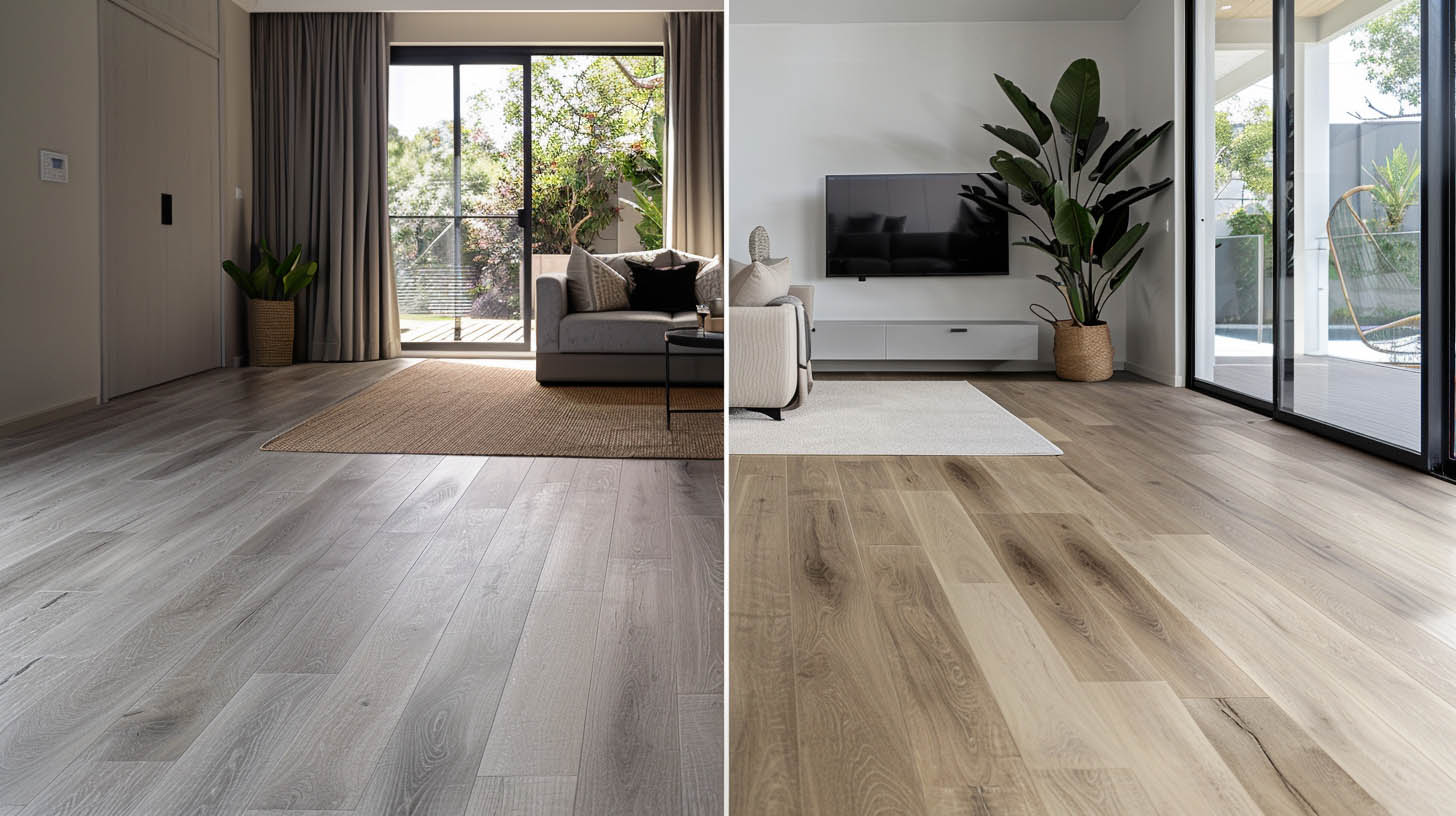
When considering vinyl flooring, many homeowners wonder if the thickness of the material really matters. A common question is whether 4mm vinyl flooring is a good option for durability and aesthetics. Let’s explore the details to help you decide.
Yes, 4mm vinyl flooring is a good choice for residential and light commercial use. It offers a balance of affordability and functionality, making it suitable for many spaces like bedrooms, kitchens, and living rooms.
Vinyl flooring thickness impacts durability1, comfort, and longevity. Keep reading to understand how to evaluate its quality and determine the right option for your space.
What is the best thickness for vinyl flooring?
Choosing the right thickness for vinyl flooring depends on your specific needs and the type of traffic your space will experience.
The best thickness for vinyl flooring ranges from 4mm to 8mm for most residential settings. Thicker options, like 12mm, are ideal for high-traffic commercial areas.
Dive deeper into thickness considerations
When deciding on vinyl flooring thickness, consider the following factors:
1. Durability
- Thicker vinyl flooring is generally more durable. For example, 6mm flooring often lasts longer in high-traffic areas compared to [4mm flooring].
2. Comfort
- Thicker flooring adds more cushioning underfoot. This is especially important for spaces where people stand for extended periods, like kitchens.
3. Subfloor Imperfections
- Thicker vinyl hides subfloor imperfections better. If your subfloor isn’t perfectly smooth, a 6mm or 8mm option will provide a more polished look.
Table: Vinyl Flooring Thickness Recommendations
| Area Type | Recommended Thickness |
|---|---|
| Bedrooms | 4mm |
| Kitchens | 6mm |
| Commercial Spaces | 8mm+ |
By matching the flooring thickness to your space’s requirements, you can strike a balance between cost and functionality.
Is 4 mil vinyl flooring good?
While 4mm is a common thickness measurement for vinyl planks, "4 mil" refers to the wear layer, which is different.
A 4 mil wear layer2 is adequate for low-traffic residential areas, but not recommended for high-traffic or commercial spaces.
Dive deeper into wear layer significance
The wear layer is the top coating that protects the vinyl plank from scratches and stains. Here’s why it matters:
1. Traffic Levels
- For areas with heavy foot traffic, a wear layer of at least 12 mil is ideal.
- In spaces with minimal traffic, such as bedrooms, a 4 mil wear layer can suffice.
2. Longevity
- Thicker wear layers extend the flooring’s lifespan. For example, a 20 mil wear layer can last up to 20 years in a residential setting.
Table: Wear Layer Thickness Guide
| Use Case | Recommended Wear Layer |
|---|---|
| Low Traffic | 4-8 mil |
| Moderate Traffic | 12 mil |
| High Traffic | 20+ mil |
To ensure long-term satisfaction, always choose a wear layer that aligns with your space’s usage.
How can you tell if vinyl flooring is good quality?
Evaluating the quality of vinyl flooring involves more than just looking at its thickness or wear layer.
Good quality vinyl flooring has a thick wear layer, rigid core construction3, and certifications for safety and durability.
Dive deeper into quality indicators
1. Core Construction
- SPC (Stone Plastic Composite) cores are denser and more durable compared to WPC (Wood Plastic Composite) cores.
- A rigid core prevents dents and warping over time.
2. Certifications
- Look for certifications like FloorScore or GREENGUARD4, which ensure the flooring meets safety and environmental standards.
3. Scratch Resistance
- Test the flooring by scratching the surface with a coin. High-quality vinyl flooring will resist visible marks.
4. Installation Method
- Quality vinyl flooring often features easy installation systems, such as click-lock or adhesive backing.
Table: Key Features of Good Quality Vinyl Flooring
| Feature | Why It Matters |
|---|---|
| Rigid Core | Prevents warping and denting |
| Wear Layer | Protects against scratches and stains |
| Certifications | Ensures safety and environmental care |
| Installation System | Simplifies and secures the process |
When in doubt, consult with your supplier for detailed product specifications and samples.
Is 3MM vinyl good?
The choice of 3mm vinyl flooring depends largely on its intended use and the specific environment.
3mm vinyl flooring is best suited for low-traffic areas with a smooth subfloor, but it may not provide the durability needed for high-traffic spaces.
Dive deeper into 3mm vinyl applications
1. Subfloor Condition
- A perfectly smooth subfloor is crucial for 3mm vinyl. Any imperfections will show through due to its thin profile.
2. Cost Efficiency
- 3mm vinyl is an affordable option, making it ideal for budget-conscious projects like rental properties.
3. Sound Insulation
- Thinner vinyl provides less sound insulation compared to thicker options.
Table: Comparison Between 3mm and 4mm Vinyl Flooring
| Feature | 3mm Vinyl | 4mm Vinyl |
|---|---|---|
| Durability | Lower | Moderate |
| Installation Ease | Similar | Similar |
| Cost | Lower | Slightly higher |
| Comfort | Less cushioning | More cushioning |
In summary, while 3mm vinyl flooring has its uses, 4mm is often a more versatile and durable choice.
Conclusion
The thickness of vinyl flooring, including 4mm options, directly affects its durability, comfort, and overall performance. For most residential settings, 4mm vinyl flooring provides a practical and cost-effective solution. However, always consider factors like wear layer thickness, traffic levels, and subfloor conditions to make the best choice for your space.
Footnotes:
-
Understanding how the thickness of vinyl flooring impacts its durability helps in making better choices for specific areas. ↩
-
Learn more about the wear layer and its importance in protecting against scratches and stains. ↩
-
SPC cores provide superior durability and stability compared to WPC cores. ↩
-
Certifications like FloorScore and GREENGUARD ensure vinyl flooring is safe and environmentally friendly. ↩


